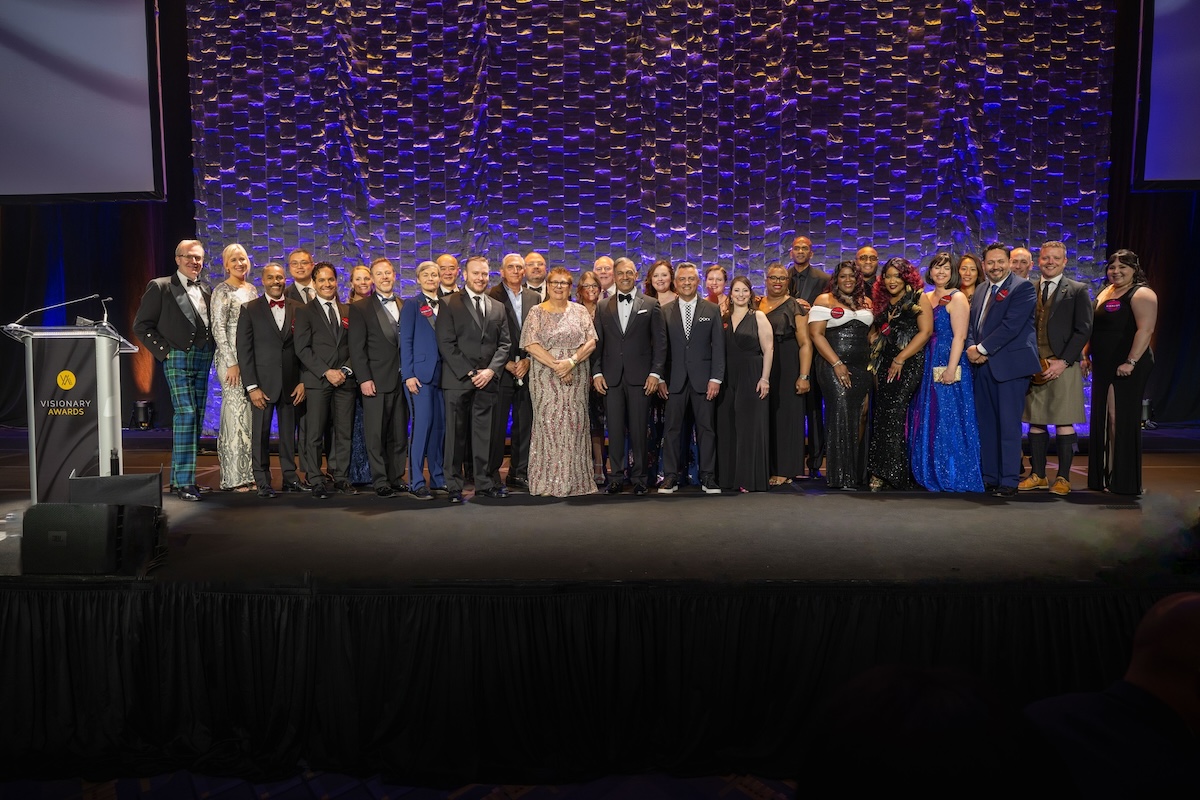Skift Take
Associations are at a critical crossroads in redefining their value to members. Thomas Reiser shares his blueprint for revitalizing the relevance of medical societies in the post-pandemic era.
The world of association management is evolving, and Thomas Reiser, the executive director of the International Society on Thrombosis and Hemostasis (ISTH), is at the forefront of this. Reiser sat down with Skift Meetings to share his insights on what is shaping the future of associations and events in a post-pandemic landscape.
“The traditional membership value is diminishing,” Reiser candidly reveals, pointing to the challenges facing associations worldwide. This captures the seismic shifts that have prompted organizations like ISTH to reassess and retool their value propositions to members.
Reiser’s journey reads like a map of the twists and turns, all revolving around association management. Straight out of college, he worked for the European Society of Radiology (ECR) in Vienna, Austria. He later became fascinated by the role of association management, which was more developed in the U.S. Eventually this led to relocating to the U.S. and working as an intern with the association management company Smithbucklin. Reiser later moved back to Europe and worked with MCI based in Brussels before moving back to the U.S. to join ISTH when it sought to professionalize its management. He joined a team of five in 2011, and ISTH is now a team of 35.
Strategic Change
At ISTH, Reiser has led several significant strategic changes that impacted all parts of the organization. For example, ISTH has moved from a biennial to an annual congress and formalized its global rotation pattern. Additionally, it made a significant shift from outsourcing to insourcing meeting management. This controlled approach caters to their need for consistency, ensuring that each meeting upholds the ISTH standard of excellence. Reiser speaks to the importance of collaborating with partners rather than simply working with suppliers. He emphasizes the need for collaboration that moves beyond transactional relationships.
Reiser’s international focus saw him deal with the unique challenges and opportunities of steering an international society from its U.S. base. This is reflected in its governance, a strategic global positioning that has become vital for ISTH.
With technology rapidly transforming the landscape, Reiser is adamant that associations must pivot and adapt. Artificial intelligence, for instance, is “an increasing part of the thinking,” Reiser notes, especially when considering its potential for enhancing member engagement and content curation.
The Real Role of Associations
For Reiser, it’s clear that medical societies help save lives. “We basically help save lives. That’s what I truly believe. [As a] medical scientific society, we are one degree away from the physicians, the researchers, and the allied health professionals who treat the patient,” he said. With almost everything that we do, we have a very direct impact on patient care.
Sharing knowledge among medical professionals is one part of the life-saving role of medical societies. Another one is the promotion of public-facing health awareness days. Reiser is proud to have been involved in launching World Kidney Day and World Thrombosis Day. These initiatives help make people aware of health conditions, some of which are preventable. The results speak for themselves. “We get letters every year and It’s just so heartwarming when people thank us because of what we’ve done. They were aware of what to look out for, what to ask, they recognized the signs and symptoms, and it allowed them to seek treatment before it became a real health crisis”
Rethinking Meetings and Membership
For Reiser and ISTH, the pandemic has catalyzed reinvention and reevaluation. “The value of meetings… is going to be questioned more,” he suggests, contemplating how the necessity of physical gatherings will be weighed against the efficiency and reach of virtual counterparts. It’s a delicate balance that Reiser seems prepared to navigate along with his team.
Reiser doesn’t shy away from acknowledging that the landscape has undergone a generational shift. “The pandemic has really taught us that we can do this very, very differently,” he states, reflecting the broader societal transformation towards remote engagement and the digital dissemination of knowledge and connections.
For Resier, the very definition of a member-driven organization is shifting. “I think membership has been changing,” he said. He is doubling down on being a facilitator of connection. “We are looking […] at what can we do to continue to enhance the connections between our members and in an authoritative way.” He also sees medical societies as beacons of trust, which he believes members will see as increasingly important. “This is really a network of people that know what they’re talking about. And the information that comes out of an organization like ISTH you can really trust,” said Reiser.
Reiser also sees significant personal benefits to engagement in associations and medical societies. “We help our members enhance their visibility, enhance their careers, give them new opportunities to engage and be part of your programming faculty, and so on,” he said.
Dealing with Stress
Amid this forward-facing dialogue, Reiser also addresses an aspect often left in the shadows: the personal toll that high-stakes leadership can exert. “I have learned really to be more open about my own stress,” he said, dispelling the myth of the unfazed leader. He values his network of peers for helping him cope and understand how to deal with stress.
Reiser moved from meeting management to association management early in his career. “I frankly couldn’t deal with the ups and downs,” he said, adding that he craved continuity over meeting management’s emotional peaks and troughs. He feels he has learned to deal with stress by understanding what he can control and focusing only on that. “[I] shed the notion that I really can control everything or a lot. And the reality is you probably can only really control a little bit of everything that happens,” he said.
As associations globally contend with the “frantic pace of change,” as Reiser aptly puts it, his perspective offers a reassuring sense that the evolution of association management is not only inevitable but manageable with the right mix of innovation, humanity, and strategic thinking.





